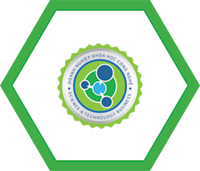Health Care /
Health tips
10 reasons you're tired
Feeling tired? Combat sluggishness with these simple remedies
Struggling to get out of bed in the morning? It may be a cause you’ve never suspected that’s easily remedied.
1. You're under-stressed
We all know stress can lead to fatigue, but research shows being too laid-back can also make you tired. In short bursts, stress not only stimulates you, it helps boost your immune system. Try an activity that takes you out of your comfort zone.
2. You're buzzed
Researchers in Sweden found using a mobile phone an hour before bed may interfere with sleep patterns and lead to less time in the deeper sleep stages. “Keep electronic gadgets out of the bedroom,” says Associate Professor Delwyn Bartlett, from the Woolcock Institute’s Sleep and Circadian Group.
3. You're dehydrated
Dehydration reduces your blood volume, making your heart work harder so you feel tired. Dr Simon Floreani, Chiropractors Association of Australia president, says you should drink 30 ml of water a day for every kilo you weigh.
4. You're out of balance
“When your body is out of balance it puts stress on isolated areas,” says Allan Mourad, director of The Wellness Club.
“This places pressure on organs such as liver and kidneys, which can be draining.”
So make sure your lifestyle is healthy.
5. Your liver is lacklustre
Scientist and naturopath Annalies Corse says an under-functioning liver could be responsible for unexplained exhaustion.
“The liver is the main detoxifying organ in our body. If it’s overwhelmed or working incorrectly, your body will feel sluggish, achy and lethargic.”
Good liver foods include artichokes, beetroot, broccoli, garlic and onion.
6. You lack vitamin C
“Vitamin C iss critical when you are fatigued as a result of prolonged stress, illness or surgery,” Corse says.
“Adrenal glands generally support us in times of stress, but they need vitamin C to keep fatigue at bay.”
The recommended daily intake for adults is 45 milligrams (up to 60 milligrams when pregnant and 85 milligrams while breastfeeding). Good sources include apples, broccoli, berries, asparagus, cabbage, cauliflower, ortified foods, dark leafy greens and tomatoes. For example, eat one banana (10.3 milligrams), one apple (12 milligrams) and one tomato (25 milligrams) a day.
7. You need magnesium
“Low magnesium levels are one of the most overlooked nutrient deficiencies and often result in symptoms similar to chronic fatigue syndrome,” Corse says.
“Magnesium becomes depleted by excess alcohol and the oral contraceptive pill.”
Adults need 320 to 420 milligrams of magnesium a day. Try six Brazil nuts (107 milligrams), 100 grams tuna (64 milligrams), a cup plain yoghurt (42 milligrams), half a cup broccoli (16 milligrams), one corn cob (31 milligrams) and a cup of green beans (99 milligrams).
8. Your alarm clock is wrong
“Having the same waking time each day is more important than the time you go to bed, as it communicates the end of your sleep cycle to your brain and body,” Professor Bartlett says.
This is why sleeping in for more than an hour on the weekend can make you feel jetlagged. The perfect waking time? According to research, 7.22am is ideal.
9. Your thyroid is underactive
Your thyroid sets your metabolic rate (the rate at which you burn food). If you are tired, sensitive to cold, forgetful and have gained weight, ask your doctor for a thyroid test.
10. You're exercising too much
Personal trainer Pete Tansley says: “Exercise releases serotonin and adenosine, which help regulate sleep rhythms.”
Too little exercise and you miss out on these. But too much, particularly at night, can lead to higher stress levels.
“Exercise elevates the stress hormone cortisol, leaving you tired,” Tansley says.
“Steer clear of alcohol after exercise and have a routine to set your body up for sleep.”
Source: www.bodyandsoul.com




